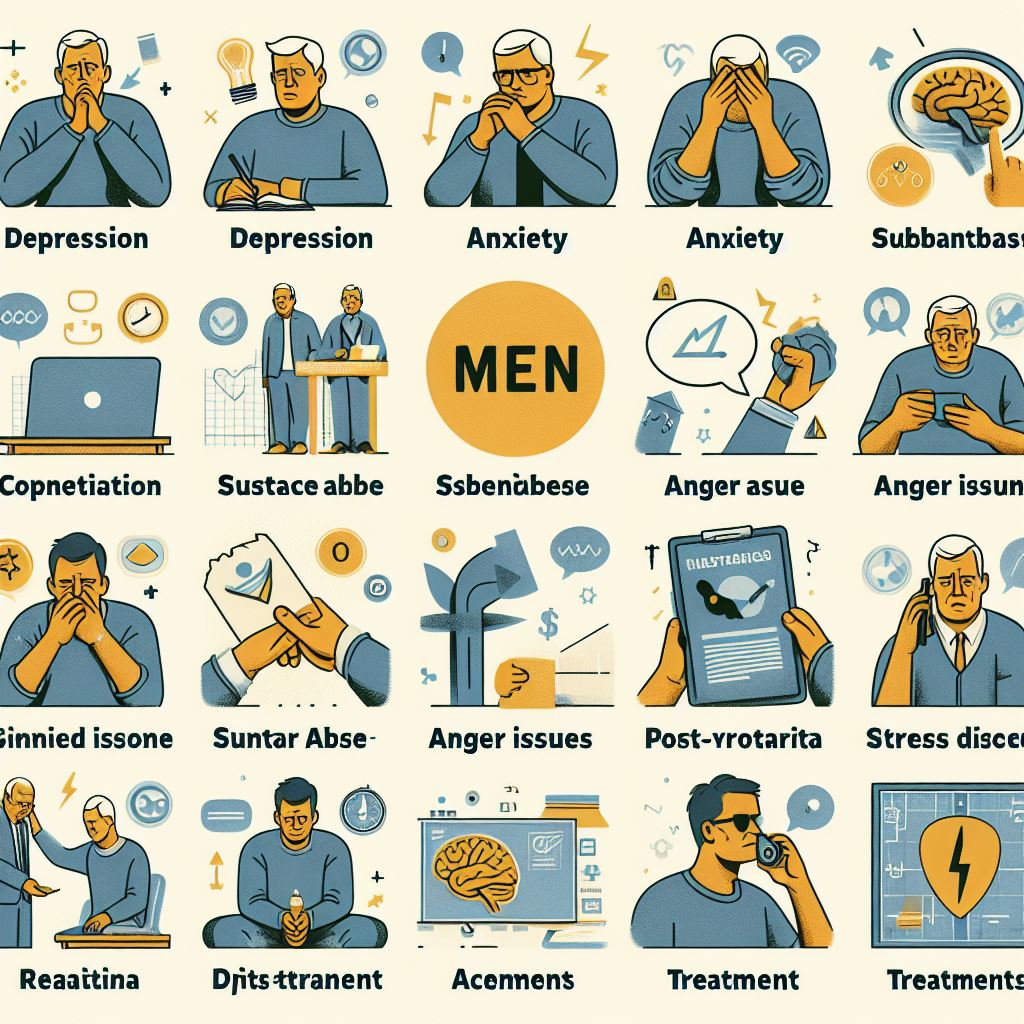In the realm of mental health, men face unique challenges that often go unnoticed or unaddressed. Societal expectations, cultural norms, and personal perceptions often contribute to the stigma surrounding common men’s mental health problems. However, acknowledging and understanding these challenges is the first step towards breaking down barriers and seeking effective solutions. In this article, we’ll delve into some of the common men’s mental health issues that affect men and explore practical strategies for dealing with them.
- Depression and Anxiety: Depression and anxiety are prevalent mental health challenges that affect men of all ages. However, due to societal pressure to appear strong and in control, many men may struggle to acknowledge or seek help for these issues. Symptoms of depression and anxiety in men may manifest differently than in women, often presenting as irritability, anger, or substance abuse. To cope with these challenges, it’s essential for men to recognize the signs, reach out to trusted individuals or professionals, and explore healthy coping mechanisms such as exercise, mindfulness, and therapy.
- Suicide Risk: Men are more likely than women to die by suicide, highlighting the critical need for early intervention and support. Factors such as social isolation, financial stress, and untreated mental health conditions can contribute to suicidal thoughts and behaviors in men. Open communication, destigmatizing discussions around mental health, and promoting help-seeking behaviors are crucial steps in reducing the risk of suicide among men. Creating supportive environments where men feel safe to express their emotions and seek assistance can save lives.
- Substance Abuse: Substance abuse often co-occurs with underlying mental health issues, serving as a coping mechanism for emotional distress. Men may turn to alcohol, drugs, or other addictive substances as a way to numb their feelings or escape from reality. However, substance abuse only exacerbates mental health problems and creates additional challenges in recovery. Seeking professional treatment, attending support groups, and building healthy coping skills are vital steps in overcoming substance abuse and reclaiming mental wellness.
- Work-related Stress: The pressure to succeed professionally, provide for families, and meet societal expectations can take a toll on men’s mental health. Long work hours, job insecurity, and high levels of responsibility can contribute to chronic stress, burnout, and diminished well-being. To mitigate work-related stress, men should prioritize self-care, set boundaries, and seek support from colleagues, supervisors, or mental health professionals. Finding a balance between work and personal life is essential for maintaining overall mental and emotional health.
- Relationship Challenges: Relationship issues, whether with romantic partners, family members, or friends, can significantly impact men’s mental well-being. Difficulty expressing emotions, conflicts in communication, and unrealistic expectations may strain interpersonal relationships and contribute to feelings of isolation or inadequacy. Building healthy communication skills, seeking couples or family therapy, and fostering supportive connections can strengthen relationships and promote emotional resilience.
In conclusion, addressing men’s mental health problems requires a multifaceted approach that involves destigmatizing conversations, promoting early intervention, and providing accessible support services. By acknowledging the unique challenges men face and offering practical coping strategies, we can empower individuals to prioritize their mental health and lead fulfilling lives. Remember, seeking help is a sign of strength, and no one should have to face mental health challenges alone. Together, we can create a more supportive and inclusive environment where men feel empowered to seek the assistance they need.
